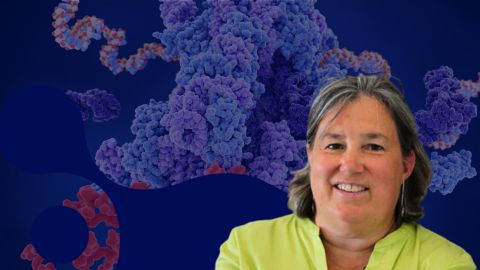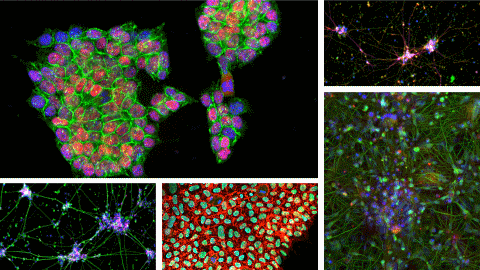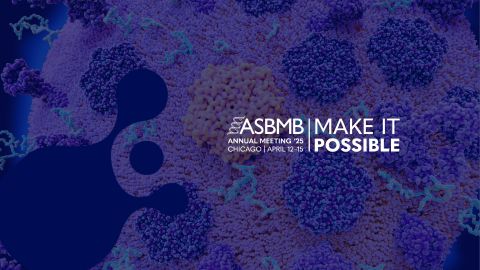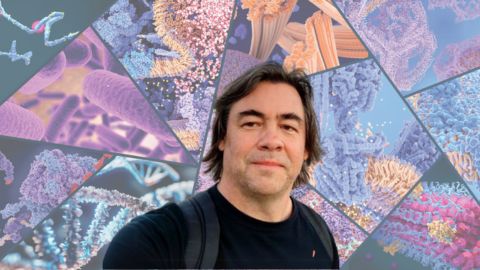Researchers get to the bottom of noninvasive gut tests
New research from the University of British Columbia Okanagan, recently published in the Journal of Biological Chemistry could make monitoring gut health easier and less painful by tapping into a common — yet often overlooked — source of information: the mucus in our digestive system that eventually becomes part of fecal matter.
Correct, what’s in our poop.

Biology researcher Kirk Bergstrom and master’s student Noah Fancy found a noninvasive technique to study MUC2, a critical gut protein, from what we leave behind in the bathroom.
“MUC2 is like the silent star in our guts. It’s constantly working to protect us, and its proper functioning is crucial for our overall health,” Bergstrom said. “It was originally thought that you could only access this important molecule from biopsies or tissue removed via surgery — highly invasive and painful procedures.
“However, our study shows mucus is actually a part of our stool, meaning we can get at it painlessly and at levels we could not before. Anytime we can do analysis noninvasively, it’s a win.”
Clues to health can be found in unexpected places, and Bergstrom’s team found a way to study important gut health markers from fecal-adherent mucus — a term that, in simpler words, refers to the mucus attached to our stool. This mucus, typically ignored and flushed away, contains a trove of information about gut health.
MUC2, a glycoprotein with many sugar chains attached, forms a protective barrier in our intestines in the form of mucus, safeguarding our gut from harmful microbes and toxins and playing a crucial role in digestive health.
Understanding MUC2 better could lead to significant advancements in managing and preventing gut-related diseases, impacting the day-to-day well-being of millions.
“We can use these new methods to visualize mucus–microbiota interactions and how they go wrong in various diseases, like inflammatory bowel diseases and colon cancer,” Bergstrom noted. “The sugars on the mucins also carry lots of information on the health status of the colon.”
Fancy led the work, which was the result of a strong collaborative effort between the Bergstrom Lab and the chemistry lab of Wesley Zandberg and the biology labs of Sepideh Pakpour, Deanna Gibson and Sanjoy Ghosh, all at UBC Okanagan.
This article was originally published in the UBC Okanagan News. You can read the original here.
Enjoy reading ASBMB Today?
Become a member to receive the print edition four times a year and the digital edition monthly.
Learn moreGet the latest from ASBMB Today
Enter your email address, and we’ll send you a weekly email with recent articles, interviews and more.
Latest in Science
Science highlights or most popular articles

Melissa Moore to speak at ASBMB 2025
Richard Silverman and Melissa Moore are the featured speakers at the ASBMB annual meeting to be held April 12-15 in Chicago.

A new kind of stem cell is revolutionizing regenerative medicine
Induced pluripotent stem cells are paving the way for personalized treatments to diabetes, vision loss and more. However, scientists still face hurdles such as strict regulations, scalability, cell longevity and immune rejection.

Engineering the future with synthetic biology
Learn about the ASBMB 2025 symposium on synthetic biology, featuring applications to better human and environmental health.

Scientists find bacterial ‘Achilles’ heel’ to combat antibiotic resistance
Alejandro Vila, an ASBMB Breakthroughs speaker, discussed his work on metallo-β-lactamase enzymes and their dependence on zinc.

Host vs. pathogen and the molecular arms race
Learn about the ASBMB 2025 symposium on host–pathogen interactions, to be held Sunday, April 13 at 1:50 p.m.

Richard Silverman to speak at ASBMB 2025
Richard Silverman and Melissa Moore are the featured speakers at the ASBMB annual meeting to be held April 12-15 in Chicago.

